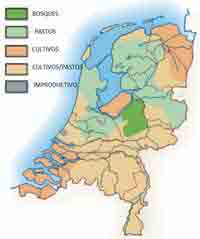Agricultural mechanisation reduces costs
LinkExchange SearchMe WhatWeDo AboutUs Sitemap Next page Onion harvest & potato harvest

Agricultural mechanisation and crop rotation are the most powerful tools for reducing production costs, ..
Mechanisation fights inflation.
Dedicated to all growers around the world. It doesn't matter whether you're from the Dutch polders, the savannahs of Venezuela, the middle of China, the rainy highlands of Panama or the Pampas of Argentina. Onions and potatoes are grown in over 170 countries around the world, and every grower has the same problems:
Production costs and market costs.
Just imagine if we could all lower our production costs, without needing to worry about the ever-changing market costs, and improve the quality of our produce at the same time.
Don't you think that would give growers a stronger position to negotiate face to face with their clients?
Agriculture in the Netherlands is globally very competitive, despite the fact that:

The blue area is below sea level

Land usage in the Netherlands
The Netherlands comprises just 41.543 square kilometres, with 16.7 million inhabitants, or 500 per square kilometre. The minimum wage is $12 an hour. Diesel costs $2.20 a litre. Farmland costs at least $110,000 per hectare. Even so, the Netherlands is the largest global exporter of onions and potatoes.
Between 2005 and 2010, its producers sold at these average prices: onions, $0.11 per kilo; potatoes, $0.12 per kilo; carrots, $0.11 per kilo.
Dutch producers are this competitive, with low production costs and high productivity, mainly because they apply two concepts:
1.) Mechanisation and
2.) Crop rotation
Both of these practices reduce production costs and increase the quality of the final product, which makes them weapons of choice for fighting inflation and improving competitivity year after year.
1. Mechanisation fights inflation

To be competitive, you need vision and investment.
Labour costs will increase every year, but the cost of a loan to mechanise your labour will NOT.
All of your crops need to be harvested, transported from the field, stored in some cases, handled, possibly processed, and finally packed. If a grower wishes to be competitive, then all of these steps (harvesting, transportation, storage, handling, processing and packing) must be mechanised. This is why we have dedicated an entire section to each of these stages, analysing them in depth. We always follow these same ideals: lower production costs, maintain quality, and add value wherever possible.
2. Crop rotation
The main form of maintenance that a grower or farmer must do to their land is to rotate their crops. A good crop rotation system does not just keep land healthy, but also reduces its deficiencies, protecting it against pests and disease, increasing its mineral and organic content and even improving its structure.
An effective crop rotation increases yields and lowers production costs year after year.
An effective crop rotation is the cheapest way to increase productivity, lower production costs and increase yields. In order to do this, all you need is the know-how. We have included a crop rotation tool on this site. We would advise you to use this crop rotation tool, and pay close attention to the six plant families that form the basis for rotation. See it here: Crop rotation
Dutch growers have been both mechanising and rotation for the last 50 years, and the results have been incredible: production costs have been dramatically slashed, and the quality of their produce is known the world over.
To see how Dutch growers calculate their income and expenditure, click here: How farming production costs are calculated in the Netherlands
Next up: Onion harvest & potato harvest
adding value to your produce, and also keeping your land in the best possible condition.
This page offers a step-by-step analysis, starting from deciding how and when to harvest, right through to the final delivery to the consumer, at the lowest cost and with maximum added value.
To mechanise your post harvest processes:
contact us:
Telephone:
+1 239 3002374
or use our (preferable)
our contact form
Address: Farm San Isidro, Volcán, Panama.


